Топ-50 мировых лидеров по версии журнала Fortune
Автор: persona
Журнал Fortune включил в рейтинг мировых лидеров двух россиян. В топ-50 американского издания попали совладелец Mail.ru Group Юрий Мильнер и председатель «Гражданского содействия» Светлана Ганнушкина. Других россиян в списке журнала нет
Председатель «Гражданского содействия» (благотворительная организация помощи беженцам) и руководитель сети «Миграция и право» правозащитного центра «Мемориал» Светлана Ганнушкина заняла 29-е место. Журнал отметил ее попытки изменить российские законы, касающиеся приема беженцев, предоставления гражданства мигрантам и возможности их детям посещать школы. Возглавляемый ею комитет помог более 50 тыс. человек.
Подробнее
Совладельца Mail.ru Group и DST Global Юрия Мильнера журнал поставил на 40-е место. «Российский физик, превратившийся в инвестора», как охарактеризовал его журнал, делал ставки на технологические компании Facebook и Airbnb, отмечает Fortune. Авторы рейтинга включили Мильнера в топ за его поддержку значимых проектов в области освоения космоса и поиска внеземных цивилизаций.
На первое место Fortune поставил «президента по бейсбольным операциям» клуба «Чикаго Кабс» Тео Эпштейна. На втором месте топа находится председатель совета директоров компании Alibaba Group Джек Ма, на третьем — папа римский Франциск.
В список Fortune также попали глава SpaceX и Tesla Илон Маск, канцлер Германии Ангела Меркель, премьер-министр Канады Джастин Трюдо, президент частично признанной Китайской Республики на Тайване Цай Инвэнь и американский сенатор Джон Маккейн.
При составлении списков журнал учитывает личные достижения человека, популярность или престиж кандидатов на позицию в рейтинге не влияют, отмечает Fortune.
Ранее эксперты Всемирного экономического форума внесли основателя сети «ВКонтакте» Павла Дурова, главу Минэкономразвития Максима Орешкина и основательницу компании «Экзоатлет» Екатерину Березий в список людей моложе 40 лет, меняющих мир вокруг себя (при этом Дуров был включен в список как представитель Финляндии).
В ноябре 2016 года журнал Fortune назвал «бизнесменом года» основателя Facebook Марка Цукерберга. Издание отмечало, что Цукербергу всего 32 года, но он уже построил мощную компанию стоимостью $375 млрд, которая насчитывает примерно 1,8 млрд пользователей.
«Топ-50 мировых лидеров по версии журнала Fortune»

1. Тео Эпштейн - Президент по бейсбольным операциям клуба «Чикаго Кабс»
In the fall of 2016, as partisan distrust and division reached abysmal depths, fascination with the Chicago Cubs became that all-too-rare phenomenon that united America. As the Cubs fought to end a 108-year championship drought, television ratings for the World Series soared by almost 50%. Even casual fans who didn’t know a bunt from a beanball stayed up late to watch the excruciating extra-inning Game 7 that turned baseball’s most famous lovable losers into winners at last.
The Cubs owe their success to a five-year rebuilding program that featured a concatenation of different leadership styles. The team thrived under the affable patience of owner Tom Ricketts, and, later, under the innovative eccentricity of manager Joe Maddon. But most important of all was the evolution of the club’s president for baseball operations, Theo Epstein, the wunderkind executive who realized he would need to grow as a leader in order to replicate in Chicago the success he’d had with the Boston Red Sox.
In his book The Cubs Way, Sports Illustrated senior baseball writer Tom Verducci describes that evolution, showing how a deeper understanding of important human qualities among his players—the character, discipline and chemistry that turn skilled athletes into leaders—enabled Epstein to engineer one of the most remarkable turnarounds in sports.


2. Джек Ма - Китайский предприниматель, основатель и председатель совета директоров компании Alibaba Group
Alibaba, a sprawling and murkily understood digital conglomerate built around e-commerce, has made Jack Ma one of the richest men in China, with a fortune valued at nearly $30 billion. And that success has rocketed him to prominence as arguably the first Chinese executive who’s an easily recognizable figure on the global stage.
What’s more, Ma is using his new platform in unexpected, invigorating ways, positioning himself as a champion of both free trade and philanthropy—and arguing that open digital marketplaces like Alibaba’s can power the world’s economy by enabling small businesses to reach an ever-expanding pool of customers. That’s the premise that emboldened Ma to promise then-President-elect Donald Trump during a sit-down in January that Alibaba would help create 1 million jobs in the U.S. over five years.
To realize his vision, Ma has urged the lowering of trade barriers while proving to be a surprisingly warm, optimistic, and effective diplomat on behalf of capitalism—one known to disarm visitors by greeting them wearing sandals and Buddhist prayer beads.


3. Франциск (Хорхе Марио Бергольо) - 266-й папа римский
As he begins the fifth year of his papacy, the first Latin American pope continues to inspire and surprise as he reconciles the conflicting demands of traditionalism and modernity within the Catholic faith. Last spring, in a publication titled Amoris Laetitia, he nudged the church hierarchy to become more welcoming to divorced Catholics and LGBT worshippers. And earlier this year he took aim at a millennium-old tradition of clerical celibacy by urging the church to consider allowing viri probati, or “tested” married men, to become priests, to help alleviate a worldwide shortage of Catholic clergy.
But beyond his church’s walls, it’s the pope’s critique of capitalism without conscience that ensures his enduring influence. In December at a gathering of CEOs convened by Fortune and Time at the Vatican, Pope Francis called on business leaders to do more to reach the billions of people shut out from the fruits of the global economy. “Give them a voice, listen to their stories, learn from their experiences, and understand their needs,” the pope urged his audience, backing up his challenge with a moral authority that virtually no other leader can wield.
“I’m in awe of the way Pope Francis has used his powerful role to spread a message of unconditional love, forgiveness, humanity, and humility.” —Arianna Huffington, Founder, Thrive Global


4. Мелинда Гейтс - Американский предприниматель и филантроп, жена Билла Гейтса. Является соучредителем и сопредседателем Фонда Билла и Мелинды Гейтс, ранее была менеджером отдела продаж в Microsoft по ряду продуктов, включая Publisher, Microsoft Bob, Encarta и Expedia
In February, Melinda Gates reiterated her foundation’s pledge to make birth control available to 120 million women globally by 2020, doing so in a passionate personal essay that reminded readers of the link between reproductive rights and economic growth. Her words sparked conversation among allies and foes alike; the fact that they carried so far shows the respect Gates has earned as the public face of the foundation she and her husband, Bill Gates, started. That clout is the fruit of real results: The nearly $37 billion worth of grants the foundation had paid out through 2015 has had an enormous impact in empowering women and reducing infectious disease in the developing world.


5. Джефф Безос - Американский предприниматель. Глава и основатель интернет-компании Amazon.com, основатель и владелец аэрокосмической компании Blue Origin и владелец издательского дома The Washington Post
It’s no exaggeration to say that Bezos has revolutionized not one but two industries. Amazon.com, which accounted for 43% of online sales in the U.S. last year, put the fear of God into retailers, pushing them to sell more cheaply and deliver more quickly. And Amazon Web Services, his cloud-computing arm, has upended the economics of information technology. Entertainment could be the next industry to be Bezos’d: This year Amazon Studios scored three Academy Awards, showing its growing muscle in content delivery.

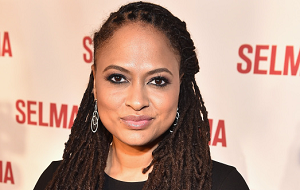
6. Ава Дюверней - Американский режиссёр, сценарист, продюсер и публицист. В 1999 году она создала The DuVernay Agency
Less than a decade into her directing career, DuVernay became the first African-American woman to helm a film nominated for a Best Picture Academy Award (2014’s Martin Luther King Jr. biopic Selma). Her own Oscars snub in the directing category that year—and the zero Oscar nods for non-white actors in successive years—stirred up controversy over Hollywood’s lack of diversity.
A former publicist, DuVernay never shied away from the issue, tweeting to her 600,000-plus followers that “shame is a helluva motivator” after the Academy tweaked its membership rules to bring in more minority voters. She finally did receive her first Oscar nod this year (for 13th, the stirring documentary about race in America). Now, DuVernay is busy making history again as the first black woman to direct a movie with a $100 million budget: Disney’s A Wrinkle in Time adaptation. Her success continues to draw attention to Hollywood’s need for better representation of women and minorities both in front of, and behind, the camera.

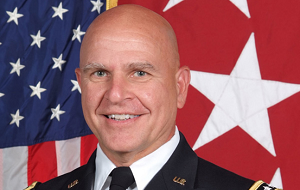
7. Герберт Макмастер - Советник по национальной безопасности 45-го Президента США
Leaders of both parties cheered President Trump’s selection of McMaster. A three-star general, McMaster has been famous since 1991, when he led a tank troop to a stunning victory over Iraqi forces in Operation Desert Storm. Iconoclastic thinking has distinguished his career: His 1997 book, Dereliction of Duty, which lambasted U.S. leadership in Vietnam, is regarded in military circles as a classic. At issue now is what will happen if and when his adamantly independent thinking conflicts with his duty of loyalty to the President.
“H.R. McMaster fought his way through the tactical myopia of the Army hierarchy to become one of our country’s most trusted defense futurists and strategists. He is an independent thinker who will challenge the politicos and work on behalf of the United States.” —Brig. Gen. Thomas Kolditz (Ret.), Doerr Institute for New Leaders


8. Цай Инвэнь - Тайваньский политик, Президент Китайской Республики (Тайвань) с 20 мая 2016 года
Tsai captured headlines in December with a phone call to then-President-elect Trump, the first between U.S. and Taiwanese leaders since 1979. It was a bold move for Taiwan’s first female President, who’s steering a cautious path between the U.S. and China. Tsai is sympathetic to independence; when Beijing tried to punish Taiwan after her January 2016 election by restricting its citizens’ visits, she wooed Southeast Asian travelers to spark a tourism boom. She is also pushing economic reforms, including shortening the workweek to five days from six.


9. Джон Маккейн - Американский политик-республиканец, сенатор США от штата Аризона с 1987 года
It has been nearly three decades since the U.S. last elected a President who saw combat in the military. That helps explain the enduring bipartisan appeal of McCain, the former Navy pilot and prisoner of war who just earned his sixth Senate term. McCain has become one of the nation’s most trusted voices on defense by being both a backer of a strong military and a cautionary voice against ill-advised conflicts. As chair of the Senate Committee on Armed Services, he’s uniquely positioned to help a new administration define what safety means.


10. Ангела Меркель - Немецкий государственный и политический деятель. С 21 ноября 2005 года — федеральный канцлер Германии
The unflappable German Chancellor—now in her 12th year and gearing up for September elections—has her capable hands full, between a refugee crisis, the unraveling of Europe, rising right-wing nationalism, Russian aggression, and a new U.S. President who could change America’s stance on all those issues and more. A committed internationalist, Merkel bristles at the idea that Germany is the liberal order’s lead defender; still, since she’s become the de facto leader of Europe, her dominance is clear. The free world is watching her.


11. Леброн Джеймс - Американский профессиональный баскетболист, играющий на позиции лёгкого и тяжёлого форварда за команду НБА «Кливленд Кавальерс»
When LeBron James returned to Cleveland in 2014 after four years with the Miami Heat he didn’t promise an NBA championship, or instant success. Instead, he made a pact with Northeast Ohio. “I feel my calling here goes above basketball,” he told Sports Illustrated. “I have a responsibility to lead, in more ways than one, and I take that very seriously.”
James has realized this ambition through the LeBron James Family Foundation, which will provide mentoring and full college scholarships to 1,100 underprivileged children in his hometown of Akron. He has also used his platform as the game’s most famous star to speak out on issues such as President Donald Trump’s immigration executive order and the relationship between law enforcement and black communities. And while he didn’t promise to end Cleveland’s 50-year championship drought, James did, in dramatic style, lead the Cavaliers to overturn a 3-1 series deficit against the favored Golden State Warriors.


12. Джон Кейсик (Касич) - Американский политик, представляющий Республиканскую партию. 69-й и ныне действующий губернатор штата Огайо
Kasich’s moderation didn’t resonate with Republican voters in last year’s presidential primaries. But as the leader of a politically consequential state, the Trump skeptic commands a key platform. Lately he has used it to rally GOP governors behind preserving the Affordable Care Act’s Medicaid expansion, which allowed him to secure coverage for nearly 700,000 Ohioans. Kasich made his case directly to Trump in February, and it made a difference: Instead of immediately zeroing out federal support, the GOP’s replacement plan would extend it until 2020.

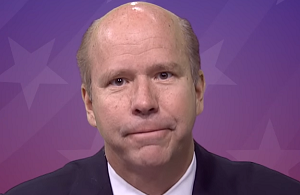
13. Джон Делани - Член Палаты представителей США от штата Мэриленд
Being a House Democrat in a government Republicans dominate entirely sounds like a recipe for irrelevance. But one of the new administration’s signature issues, rebuilding the nation’s infrastructure, is a problem Delaney has focused on since he arrived in Congress four years ago. Delaney is pushing a business-friendly solution: He wants to tap proceeds from repatriated foreign profits to seed public-private partnerships that will take on new projects. That may be the best option for unleashing major spending without blowing a hole in the federal deficit.

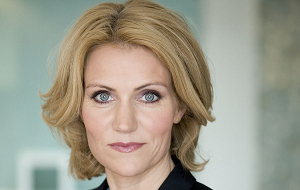
14. Хелле Торнинг-Шмитт - Датский политик, премьер-министр Дании в 2011—2015 годах, лидер Социал-демократической партии с 2005 года по 2015 год
As Denmark’s first female Prime Minister, Thorning-Schmidt helped steer the nation through the financial crisis. Today, in her dream job, she runs a charity with a budget of over $2 billion that reaches 55 million children in 120 countries. Save the Children’s latest campaign seeks to address 400 million “forgotten” poor children who are excluded from services like health care and education because they are girls, refugees, or disabled.

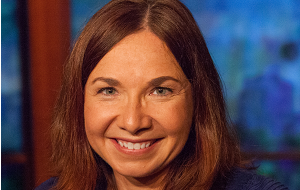
15. Кэтрин Хейхо - Директор Центра климатических исследований Техасского технологического университета в Лаббоке
Many lament that, in these politically charged and contentious times, Americans can’t even agree on science anymore. Indeed, attitudes toward climate change—whether, despite the abundance of evidence, it really exists—have widened with the nation’s polarization. Into this breach steps Hayhoe, a Canadian climate scientist who also happens to be an Evangelical Christian living in Texas; from this unique perch, and with the help of her PBS web series “Global Weirding,” she has become a friendly if unexpected force in spreading the science. Whether speaking to her digital audience, or with fellow parishioners, Hayhoe’s approach is patient and compassionate and modeled after conversations she had with her husband, a linguistics professor and pastor who once himself had doubts about climate change. Together, they wrote Climate for Change: Global Warming Facts for Faith-Based Decisions in 2009 (it’s being reissued this year), a book, in which, just as importantly, Hayhoe, an active and well-published leader in her field, came out to the scientific community as religious.

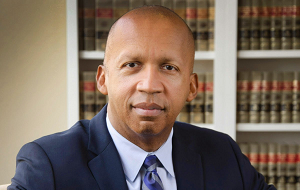
16. Брайан Стивенсон - Адвокат. Основатель и исполнительный директор "Equal Justice Initiative"
For decades, Stevenson has been a tireless advocate for justice reform; the civil rights lawyer and his Alabama-based organization, the Equal Justice Initiative (EJI), have rescued more than 125 individuals from death row and relentlessly called attention to biases in the system. Now, he’s working to address—and encouraging all Americans to confront—what he considers their root cause: the nation’s barely-acknowledged history of “racial terrorism,” the ugly past of slavery, lynchings and anti-black violence that underlie race relations today. Stevenson believes this uncomfortable reckoning will get the country to a better place; to lead the way, EJI is developing educational materials and building a racial justice museum as well as a memorial for the country’s 4,000 lynching victims.


17. Джанет Йеллен - Американский экономист, глава Федеральной резервной системы США с 3 февраля 2014 года (первая женщина на этом посту)
When the Fed began raising rates in late 2015, there was reason to fear a meltdown, especially given that a generation of investors had come of age without experiencing a rate hike. That markets stayed sane is a testament to Yellen, who has been calm and consistent in making sure Wall Street and the public know what to expect from the world’s most powerful central bank. Credit Yellen, too, for resisting populist pressure to raise rates earlier, when that could have hurt a fragile economy.

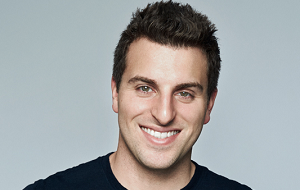
18. Брайан Чески - Сооснователь и генеральный директор Airbnb
Nine years ago, Chesky and fellow cofounders Joe Gebbia and Nathan Blecharczyk were hustling to get a business off the ground that most investors scoffed at. Today the disruptive “home-sharing” platform claims some 160 million “guest arrivals”—2 million people slept in Airbnb accommodations this past New Year’s Eve alone—and a private-market valuation of $31 billion.
As CEO, Chesky—the only one of the three founders with no prior business experience—has scaled with the company and then some, steering Airbnb through regulatory opposition, headline-generating safety incidents and an existential crisis around discriminatory behavior on its platform. He has led the business to new heights too, overseeing an ambitious expansion into “experiences,” events, and other services (coming soon, we’re told: flights) and leading Airbnb to something few unicorns can claim: profitability.
Last month Chesky added head of community to his title, a shift to cozy up to the people who control and deliver the product he sells: Airbnb’s hosts. The touchy-feely tactics set up a stark contrast to Airbnb’s sharing-economy alter-ego, Uber, under attack for an allegedly aggressive and sexist culture and for a leaked video showing CEO Travis Kalanick berating an Uber driver. Kalanick has said he needs leadership help. He might take a page from his fellow disrupter’s playbook.
“[Brian Chesky] feels it all the way through. I think he would be doing what he’s doing if he didn’t get paid a dime for it.”—Warren Buffett, CEO, Berkshire Hathaway, from “The Airbnb Story” by Leigh Gallagher

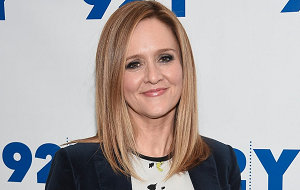
19. Саманта Би - Ведущий и исполнительный продюсер «Full Frontal». Канадская актриса, комедиантка, сценарист, кинопродюсер, журналистка и телеведущая
Bee became an essential voice in late-night television in 2016 with the debut of her TBS show, Full Frontal With Samantha Bee. The presidential election provided plenty of fodder for comedians, and the Canadian-born Bee used her show as a weekly platform for dispensing incisive and often provocative political commentary while standing out as a rare female voice in an overwhelmingly male late-night landscape. Thanks to a stream of viral clips that has earned Full Frontal’s YouTube channel more than 168 million views—from Bee’s interviewing President Obama to her ferociously tackling subjects like the Women’s March—Bee’s show has regularly beaten her former employer, The Daily Show, in the ratings.

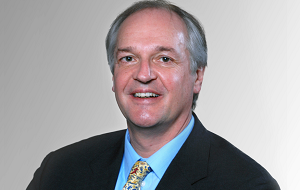
20. Пол Полман - Генеральный директор группы компаний Unilever
Unilever doesn’t have a corporate social responsibility department—that place where most companies relegate their do-gooding activities. Instead the consumer goods giant has integrated solving social issues, from food waste to climate change to poverty, into every part of its business. The strategy is the brainchild of Polman, Unilever’s CEO since 2009, who had a vision of doubling its revenue and cutting its environmental footprint in half. Now Unilever has everything from a global handwashing campaign to an ambitious plan to improve the nutritional profile of its products.


21. Джон Робертс - Американский юрист, Председатель Верховного суда США с 29 сентября 2005 года
Roberts spent much of the past year as a leader in limbo: The Senate’s refusal to consider President Obama’s nominee to replace the late Antonin Scalia left the Supreme Court with a 4-to-4 ideological deadlock in several cases. But Roberts earned plaudits for keeping things humming relatively smoothly. And court watchers say it’s telling that President Trump’s first high-court nominee, Neil Gorsuch, is very much in the Roberts mold: a conservative with the intellectual and diplomatic skill to forge centrist consensus as needed.

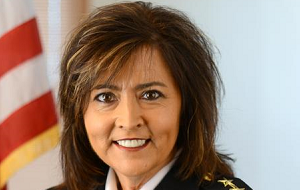
22. Janeé Harteau - Chief of Police, Minneapolis
Over the past 18 months, Harteau has endured the kinds of challenges that every chief dreads. Growing tension with the police union. A spike in overall crime rates. And most challenging of all: the fatal shooting by police of an African-American man, Jamar Clark, under dubious circumstances that prompted an 18-day protest organized by Black Lives Matter.
Harteau weathered these woes with the steadiness that has made her a leadership role model. A 30-year veteran and the city’s first female and first gay police chief, Harteau is the mind behind MPD 2.0, a drive to build trust in the community by putting more cops on the beat. Civic leaders credit her for dismissing cops for misconduct. The officers involved in the Clark shooting were not indicted, but local prosecutors are rethinking the use of secret grand juries in police-involved killings—a victory for the transparency that both Harteau and protesters favor. And Minneapolis was one of the few major U.S. cities to report a significant decline in homicides in 2016.


23. Joe Biden - Former U.S. Vice President
It wasn’t until the former Vice President lost his son Beau to cancer in 2015 that many people first came to appreciate Joe Biden as a leader. A childhood stutterer who was elected to the Senate at age 29 in 1972, then lost his first wife and baby daughter in a car crash just weeks later, the Delaware politician became a living example of perseverance that resonated with Americans across both sides of the aisle. He inspired further admiration when he responded to Beau’s death by taking up the White House’s “cancer moonshot” initiative, which, in its short tenure so far, has focused critical attention on breaking down barriers to research collaboration and data sharing. Biden’s personal mission to cure the disease will be the focus of his career after politics, and he’ll have public goodwill on his side: He left office with his Gallup approval rating at an all-time high of 61%.


24. Zhang Ruimin - CEO, Haier Group
Many CEOs call their employees associates; others call them partners. Zhang calls all 73,000 of them entrepreneurs—and actually means it. It’s one sign of how Zhang is changing his company, the world’s No. 1 appliance maker, and in the process reconceiving the large business organization more profoundly than anyone else on the planet.
He’s winning in part by expanding through acquisition; in 2016 he bought General Electric’s appliance business for $5.4 billion. More fundamentally, Zhang sees a future that most CEOs don’t. “Competitions in the Internet era are not between companies but between platforms,” he tells Fortune. At Haier, teams of people who may not be Haier employees come together for projects and then disperse. A product can also be a platform for multiple companies. One example: For a networked “smart” oven project, companies that might sell food via the device could pay to be partners, enabling Haier to reduce appliance prices.
Haier consists of some 3,000 company-funded entrepreneurial micro-enterprises that live or die by their individual success, plus a few hundred teams funded partly by outside investment. “If a startup team cannot attract any venture capital, they can either consider how to progress and strive harder or they will be dismissed,” Zhang explains.
So how do you turn thousands of corporate employees into entrepreneurs? Wrong question. “The task is not to turn Haier’s internal staff into entrepreneurs, but rather to attract all the entrepreneurs in society onto our platform,” Zhang says.


25. Carmen Aristegui - Host and Reporter, Aristegui Noticias
If the Fourth Estate is under siege worldwide, Aristegui stands as an immovable pillar. In Mexico, where nearly 100 journalists have been murdered or have disappeared in the past decade, Aristegui has spent 20 years exposing high-level corruption as a radio host and as the anchor of a show on CNN Español. She recently showed her reach and put pressure on the nation’s elite when her website, Aristegui Noticias, reported an alleged conflict of interest involving Mexico’s first lady, a contractor, and a $7 million home purchase.
“Aristegui is an example of what journalism should aspire to be: someone who courageously pursues the truth, holds power accountable, and defends democracy.”—Michael Schlein, President and CEO, Accion


26. Arundhati Bhattacharya - Chairman, State Bank of India
Bhattacharya, the first-ever woman to helm India’s largest bank, has expertly steered SBI—No. 232 on the Global 500—through rough waters (an ongoing battle with bad loans) and sudden storms (India’s surprise demonetization scheme). She’s been transformative, too—dragging the sprawling, 211-year old institution into the digital era and overhauling HR for her 200,000+ employees. The complex, six-bank merger she orchestrated last year will catapult SBI into the ranks of the world’s 50 largest banks. That effectiveness, and her frank, outspoken style has been noticed: Bhattacharya, who was recently granted a rare extension to her three-year term at SBI, was, last year, considered a favorite to lead the Reserve Bank of India, and nominated for the No. 2 job at the World Bank.


27. Shakira - Singer, Songwriter, and Producer
If you didn’t know that the multilingual singer was a force of nature in the philanthropic world, you’re a little late to the party. Shakira’s cause of choice: early-childhood development and education, particularly in her home nation of Colombia, where she launched the foundation Pies Descalzos (named after an early album, it translates as “Barefoot”) in 1997. She has also developed her public-policy chops as a founding member of the ALAS Foundation, spurring governmental action on early nutrition and schooling across Latin America. It’s not just an academic exercise: In 2016 the foundation’s schools fed and educated more than 6,000 children. Of course, it is performing that has given Shakira a uniquely powerful platform, with over 32 million followers on Instagram and 43 million on Twitter. Her 104 million fans on Facebook make her the most-followed female celebrity on the planet. But her real leadership comes in how she has leveraged those platforms on behalf of vulnerable kids.


28. Raj Panjabi - CEO, Last Mile Health
Tackling the “last mile”—the final, critical step of delivering products or services to consumers—is a conundrum for businesses, and in health care, last-mile problems hit poor regions especially hard. Panjabi’s nonprofit, Last Mile Health, is striving to change that by training locals in developing countries in lifesaving measures, such as protecting themselves against pandemics and safely burying victims killed by infectious diseases. Last Mile has already proved its mettle; its work in Liberia helped stanch the spread of Ebola during the 2014 outbreak.


29. Светлана Ганнушкина - Российская правозащитница, педагог и общественный деятель. Председатель Комитета «Гражданское содействие», член Совета и руководитель Сети «Миграция и Право» правозащитного центра «Мемориал», а также (до июня 2012 года) член Совета при Президенте Российской Федерации по содействию развитию институтов гражданского общества и правам человека. В 2016 году — кандидат в депутаты Государственной Думы от партии «Яблоко»
Российская правозащитница, педагог и общественный деятель. Председатель Комитета «Гражданское содействие», член Совета и руководитель Сети «Миграция и Право» правозащитного центра «Мемориал», а также (до июня 2012 года) член Совета при Президенте Российской Федерации по содействию развитию институтов гражданского общества и правам человека. В 2016 году — кандидат в депутаты Государственной Думы от партии «Яблоко
In Putin’s Russia, fighting for human rights isn’t the safest career path. And yet Gannushkina, a 75-year-old mathematician, soldiers on. Her Civic Assistance Committee has helped over 50,000 people, mainly migrants and refugees, navigate Russia’s byzantine legal system. Some of her successes: Pushing to amend refugee laws to grant citizenship to millions, and lobbying for the rights of refugee children to attend Russian schools. All this, despite her organization being labeled a “foreign agent” by the Russian government.


30. Илон Маск - Канадско-американский инженер, предприниматель, изобретатель и инвестор; миллиардер. Основатель компаний SpaceX и X.com (последняя была объединена с Confinity, переименована в PayPal и продана в 2002 году за 1,5 млрд долларов). Основатель, владелец, генеральный директор и главный инженер SpaceX; главный разработчик (Chief Product Architect), генеральный директор и глава совета директоров Tesla Motors. Входит в совет директоров компании SolarCity, основанной его двоюродными братьями
Visionary, ideologue, risk-taker: None of these shorthand labels quite capture who Elon Musk is. The billionaire entrepreneur is running two companies he cofounded that together employ 35,000 people. His aims are stratospheric. Tesla, the automaker and sustainable-energy company that acquired SolarCity in 2016, is Musk’s pathway to a carbon-emissions-free world. (The batteries he’s beginning to crank out at Tesla’s “Gigafactory” in Nevada are another element of that strategy.) SpaceX, an aerospace startup, was founded to lower the cost of space transportation and ultimately enable the colonization of Mars.
Musk, who has admitted to keeping a sleeping bag near a production line at Tesla’s factory in Fremont, Calif., has added another problem to his to-do list—soul-crushing traffic. His new business, the Boring Co., aims to find a way to quickly and cost-effectively dig networks of tunnels for vehicles and high-speed trains such as the Hyperloop, an idea he floated in 2013 that universities and startups are actively trying to develop.
Musk’s aura as a technocratic seer has taken some lumps over the past couple of years. Tesla—experiencing production delays and falling short of delivery goals—hasn’t always lived up to the bullish expectations of analysts and its legion of passionate fans. And the Tesla/SolarCity merger drew fire from critics who question whether the acquisition will benefit shareholders. But many still look to him as one of the tech world’s foremost civic-minded voices. Musk advises President Trump as part of the Strategic and Policy Forum.


31. Джастин Трюдо - Канадский политик, премьер-министр Канады с 4 ноября 2015 года, лидер Либеральной партии Канады с 14 апреля 2013
In a world roiled by populist anger, Justin Trudeau stands as a lonely icon of moderation. As Prime Minister, he has helped Canada welcome more than 35,000 refugees from the Syrian conflict—more than double the number taken in by the U.S. (which has 10 times the population). He has also achieved smooth relations with other leaders, including an unpredictable new President south of the border, increasing Trudeau’s stature on the world stage. At home, Canadians are enjoying steadier economic times, with the country posting booming GDP growth in the second half of 2016 after a nearly stagnant 2015. Trudeau still enjoys status as a sex symbol, but now with the growing mantle of a statesman.


32. Rebecca Richards-Kortum - Professor, Rice University
Richards-Kortum and the Rice 360° Institute for Global Health were recently named semifinalists for a $100 million MacArthur grant. It’s not hard to see why. Richards-Kortum is a health pioneer and bioengineering prodigy who has brought groundbreaking yet affordable medical technology to some of the world’s poorest communities. From light-based therapies for jaundice in newborns to high-resolution “microendoscopes” for cancer screenings, her innovations have improved care for thousands of underserved women and children.


33. Strive Masiyiwa - Chairman, Econet Wireless Group
Few people have shaped modern Africa as much as Masiyiwa, whose telecommunications firm, Econet, came into being in 1998 after a long legal battle with the Zimbabwe government. His victory busted up a state monopoly and helped spur the development of private telecoms across the continent. Masiyiwa has since relocated to London, but his energetic and well-rounded philanthropy still makes an impact in Africa; he chairs numerous boards and has been lauded for supporting orphans, funding scholarships, and fighting hunger, poverty, and Ebola.
“Strive Masiyiwa’s life and his business story is impressive, but it is his lifelong commitment to helping others that set him apart…He is a crusader who has transformed countless sectors and lives while also seeking to preserve Africa’s vital resources through his own sustainable investments and environmental policy leadership…I am inspired by his vision, his persistence, and his fearless spirit.” —Jean Case, CEO of the Case Foundation and chairman of the Board of Trustees of the National Geographic Society


34. Tamika Mallory, Linda Sarsour, Bob Bland, and Carmen Perez - National Cochairs, The Women's March on Washington
Women’s issues, from equal pay to reproductive rights, have long been central to political debate. When Donald Trump won the presidential election on a platform that many people believed would roll back those rights, Mallory, Sarsour, Perez, and Bland wanted to send the message that these issues were nonnegotiable. Veteran civil rights activists, the four were able to coordinate the Women’s March on Washington in barely two months. Their original 250,000-attendee estimate was eclipsed by a crowd that reached nearly half a million. Add simultaneous marches held in hundreds of cities worldwide, and the total approached 5 million—a testament to the leadership potential of vibrant, diverse, and self-organizing groups. To capitalize, the cochairs launched 10 Actions/100 Days as a hub through which citizens could find nearby protests, strikes, and other events to sustain the fire they had started.
“The Women’s March stands out as a remarkable example of leadership that eschews ‘command and control’ in favor of ‘connect and collaborate,’ two-way over one-way conversation, and wielding moral over formal authority.”—Dov Seidman, CEO, LRN and author of “How”


35. Diana Natalicio - President, University of Texas at El Paso
America’s income-inequality crisis plays out on college campuses, where rising costs and cultural barriers mean low-income students struggle to get in and struggle to stay. In her 29 years at the helm of UTEP, a huge public university whose student body is 80% Hispanic, Natalicio has made wider access her priority, fighting to keep tuition low and creating flexible on-campus jobs. Academics, meanwhile, haven’t suffered: UTEP has steadily climbed in national college rankings, and research funding has soared on Natalicio’s watch.


36. Ohood Al Roumi - Minister of Happiness, United Arab Emirates
How do you define happiness for an entire nation? As one of the world’s few cabinet officials tasked with improving a country’s mood, Al Roumi is reorienting the oil-rich UAE toward a more holistic understanding of quality of life, even as the country struggles to make progress on gender equality, freedom of speech, and the rights of migrant workers. Since her appointment last year, Al Roumi has tasked her subordinates to study the science of well-being; her next challenge will be converting that science into concrete reforms.


37. Fazle Abed - CEO, BRAC
In 1971, Bangladesh won a brutal war for independence, and some 10 million refugees returned to a country in urgent need of rebuilding. In stepped Abed, a former corporate executive who established the Bangladesh Rural Advancement Committee, now the world’s largest nongovernmental organization. BRAC’s fingerprint includes microfinance; its program has given out $1.6 billion in loans to more than 5 million Bangladeshis—and education, where it has graduated over 11 million students.


38. Haruno Yoshida - President, BT Japan
Yoshida climbed the ladder by working abroad at foreign firms that promote women more readily than their counterparts in Japan’s male-dominated business climate. Now back in Japan, she holds a unique position as a prominent female executive who raised a child as a single mother. She’s outspoken about the challenges women face, once comparing their workplace disadvantage to “being chained by the leg.” She has had a bigger megaphone since 2015, when Japan’s powerful business association named her its first female executive.


39. Jamie Dimon - CEO, JPMorgan Chase
There was a JPMorgan Chase before Jamie Dimon, but it was a shadow of its current self. Since he took over as CEO in 2006, the bank’s assets have risen nearly 110%, while earnings have nearly tripled. Dimon’s actions during the financial crisis were a master class in risk management, and his firm is now the undisputed biggest bank in the nation, with no sign of giving up that title. Just days after the President was elected, his transition team zeroed in on Dimon as the best choice for Treasury Secretary—an idea with support on both sides of the aisle. Dimon said no, however, and he now looks poised to lead by showing what a huge, well-managed bank can accomplish under a laissez-faire government.


40. Юрий Мильнер - Предприниматель, менеджер, совладелец Mail.ru Group и DST Global, бывший председатель совета директоров Mail.ru Group
Named for the cosmonaut and first person to reach outer space, the Russian physicist-turned-investor made his billions placing early bets on technology names such as Facebook and Airbnb. Now he’s backing bigger scientific gambles, such as a project to find signs of intelligent life elsewhere in the universe. He has also persuaded his pals, Facebook’s Mark Zuckerberg and Alibaba’s Jack Ma among them, to fund major awards for physicists, biologists, and mathematicians; the Breakthrough Prizes have given away nearly $200 million to date.


41. Randall Stephenson - Chairman and CEO, AT&T
The head of one of the nation’s largest employers (and, with $163.8 billion in revenue last year, one of the world’s largest companies), Stephenson has taken on a challenge befitting AT&T’s stature: retraining more than 100,000 workers. In the face of rapid technological change, many CEOs have cut their people loose. But AT&T is launching a roughly billion-dollar push to teach them new skills through its sweeping 2020 initiative. The drive is already paying off: Last year AT&T filled more than 40% of open positions with internal candidates.


42. Chimamanda Ngozi Adichie - Novelist and Essayist
The prize-winning Nigerian writer has won admirers with her prose and a pair of viral TED Talks (one of which was famously sampled by Beyoncé). But Adichie has been most powerful in challenging her audiences to think differently and more expansively about Africa, identity, race, and gender. Many in the English-speaking world have embraced the invitation, and she has emerged as a feminist icon—she tells girls to get over being liked—and a fearless political and cultural critic.


43. Marc Benioff - CEO and Chairman, Salesforce
In addition to leading his cloud-based software company to its first annual profit since 2011 last year, Benioff has stepped up his activism for LGBT rights. He was instrumental in getting Indiana to nix a law allowing businesses to discriminate against gay customers—and thanked the state by promising it 800 new jobs. Benioff took the same tack to pressure Georgia into vetoing a similar bill in 2016, then persuaded several firms to cancel expansion in North Carolina after that state adopted its anti-transgender bathroom law.


44. Frank Mugisha - Executive Director, Sexual Minorities Uganda
It is challenging enough to be a member of the LGBT community in the West. Imagine functioning in a society that still criminalizes—and even debates the death penalty for—homosexual activity. That is the world facing Frank Mugisha. The 37-year-old, who came out at 14, spoke out against the country’s Anti-Homosexuality Bill, which mandated life in prison for LGBT Ugandans, and he led the campaign that eventually led to the bill’s invalidation by the courts. More battles lie ahead for a leader of a community that faces open hostility.

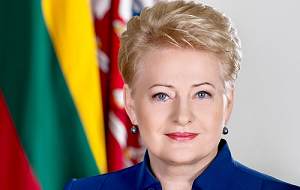
45. Dalia Grybauskaitė - President, Lithuania
She’s not called the Baltic states’ “Iron Lady” for nothing. Grybauskaitė, who in 2009 became Lithuania’s first woman President, began urging action against Vladimir Putin’s breaking of international law before Russia annexed Crimea or launched its “influence campaign” in the U.S. election. Grybauskaitė’s frank, insistent style sets her apart (particularly among her mealymouthed EU peers), and as the 28-nation bloc ponders a resurgent Russia, she’s not holding back in her calls for a strong NATO and a united European front.


46. Chance the Rapper - Musician and Activist
If you harbor any old-fashioned stereotypes about what a leader looks like, put them aside, because Chance the Rapper is about to bust every one of them. In a music industry dependent on album sales and exclusive artist deals, 23-year-old Chance—born Chancellor Bennett—stays independent, releasing streaming-only mixtapes. This year, the rapper and author of infectiously uplifting, Christian-infused rhymes set a new template for the music industry when his mixtape Coloring Book became the first streaming-only recording to win a Grammy (in fact, it won three).
Chance is also a political force as an anti-violence campaigner in his hometown of Chicago, and he may only be getting started. His latest salvo: A $1 million donation to Chicago Public Schools, after he called Illinois Governor Bruce Rauner to task for what Chance called Rauner’s neglect of educational funding. The cash will go towards arts and after-school programming —and even set off a chain reaction, with Seattle Seahawk Michael Bennett inspired to donate his endorsement money to worthy causes.


47. Hu Shuli - Editor-in-Chief, Caixin Media
Hu is a paragon of important journalism inside China’s notoriously close-fisted media environment. As a young reporter, she was suspended from her paper after asking it to cover the 1989 Tiananmen Square protests. Undeterred, Hu started the business paper Caijing and exposed everything from stock-market manipulation to a state cover-up of the SARS outbreak. Hu’s current home, the media company Caixin, retains her penchant for provocation; last year she issued an extraordinary call against state censorship.


48. Sadiq Khan - Mayor, London
It was a very different world when Khan became London’s first Muslim mayor last May. The son of Pakistani immigrants, Khan, a charismatic human rights lawyer and proud feminist, seemed the embodiment of the diverse, global city he was elected to lead. Less than a year later, in the aftermath of Brexit, Khan finds himself in a battle to preserve “open” London. The mayor has been unwavering in its defense, courting the business community while arguing that a hard Brexit, separating the city from the EU, will be disastrous for Britain’s engine of growth.


49. Carlos Rodriguez-Pastor - CEO, Intercorp
Rodriguez-Pastor is a billionaire who runs a network of malls, pharmacies, and banks in Peru. In 2010 he took on a vital mission by launching Innova Schools, which provides 19,000 children with affordable, high-quality education. Recent testing indicates that Innova second-graders are far more proficient than average in math and reading—welcome news in a country whose education system ranked last among 65 countries in an OECD survey.


50. Lisa Su - CEO, Advanced Micro Devices
Though she didn’t get nearly as much attention as Marissa Mayer at Yahoo, Su’s challenge when she joined struggling semiconductor maker AMD in 2014 was perhaps just as great—and what’s more, Su has succeeded. A former chip designer, Su diversified AMD away from the PC market to focus on higher-growth areas like chips for videogaming consoles and data-center servers. She also made a savvy deal to license chip designs in China. Her reward: rebounding sales and a stock price that quadrupled in 2016.

